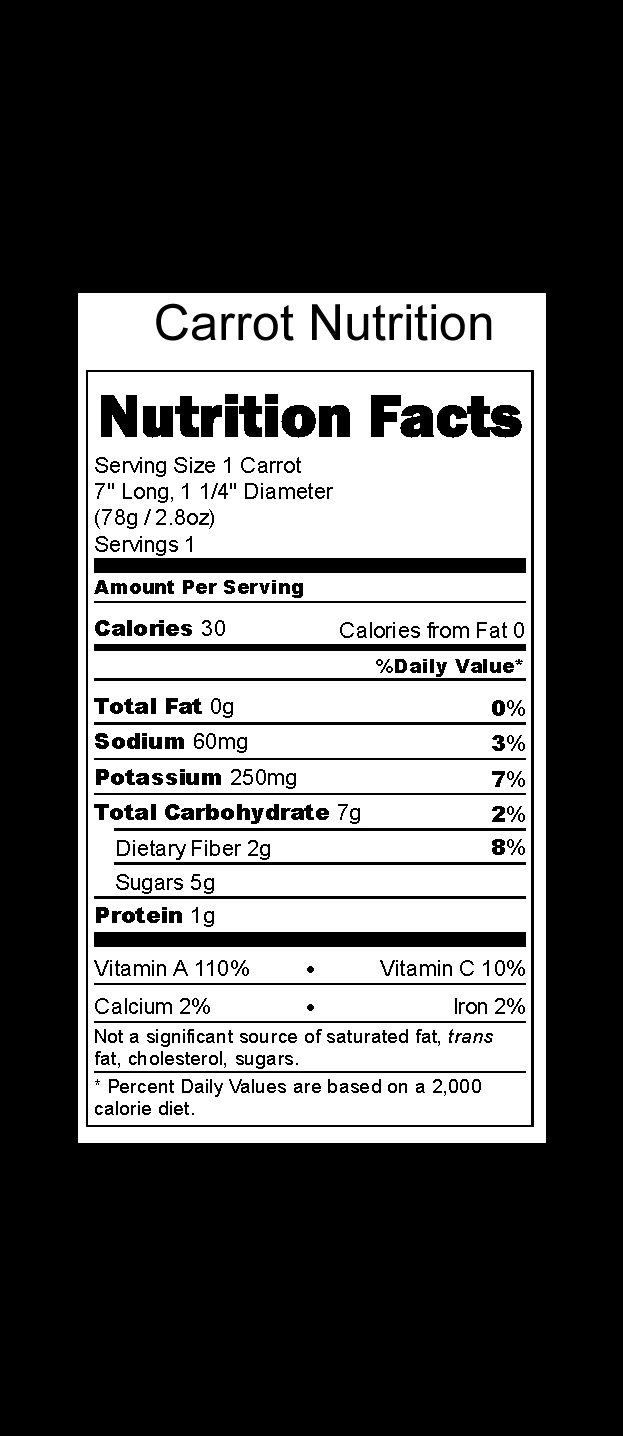
♥ Join us on tsu as the social media platform that rewards your content ♥
The carrot is a root vegetable cultivated extensively over the world for its crunchy texture and sweet taste. They can grow in various conditions and there are over 100 species of carrots of all colors and sizes. Carrot roots have a nice crunchy texture and are usually sweet while the green tops are fresh tasting but bitter. The carrot is considered to be a power-food for its amazing health benefits.
Most carrot cultivars are about 88% water, 7% sugar, 1% protein, 1% fiber and 0.2% fat. Few other vegetables contain as much carotene as carrots, which the body converts to vitamin A. Carrots are also excellent sources of vitamin B and C and calcium pectate. Carrots contain potassium, copper, folic acid, thiamine and magnesium in fairly adequate amounts making them a truly versatile vegetable.
Health Benefits of Carrots
1. Healthy Vision: Ask anyone, and they’d stereo-typically tell you carrots are good for your eyes. This stereotype is thankfully true. Carrots are rich in beta-carotenes that are converted into vitamin A in the liver. Vitamin A is transformed to rhodopsin in the retina, a purple pigment necessary for night vision, hence maintaining good eye health. The intake of beta-carotenes has also been shown to protect against macular degeneration and senile cataracts.
2. Anti-aging: Beta-carotene serves as an antioxidant that helps protect cells from damage by eliminating free radicals. It has also been shown to slow the aging of cells and a variety of ill effects that come with aging.
3. Cancer prevention: Various studies have shown that carrots help reduce the risks of lung, breast and colon cancer. It is the falcarinol and falcarindiol found in carrots that are anti-cancer agents. Also the antioxidants in carrots including beta-carotene has been linked to reduced risk of several cancers, especially lung cancer.
4. Prevent heart diseases: In a 10-year study conducted in Netherlands, it was found that participants who had higher daily intakes (about 50-75 grams) of carrots had a significantly lower risk of cardiovascular diseases compared to the participants who has lower daily intakes (25 grams) of carrots (they still received the benefits from eating carrots). Diets high in carotenoids are great for heart health and carrots have alpha-carotene and lutein in addition to beta-carotene. Carrots also help in reduction of cholesterol levels because of the presence of calcium pectate, a soluble fiber that binds with bile acids, forcing cholesterol to be drawn from the
bloodstream to make more bile acids.
5. Oral health: Chewing a carrot after food is shown to kill all harmful germs in the mouth. In addition, it cleans teeth, scrapes off plaque, food particles, stimulates the gums and triggers a lot of saliva which being alkaline balances
off the acid-forming, cavity bacteria.
6. Nourished skin: Vitamin A and other antioxidants found in carrots serve to protect the skin from sun damage. Also, vitamin A helps detoxify the liver thus ensuring cleaner blood which is vital in maintaining healthy skin, prevent dry skin and other skin blemishes.
7. Reduce risk of stroke: A Harvard University study revealed that people who ate more than 6 carrots a week are less likely to suffer from a stroke than those who ate just 1 carrot a month or less.
8. Gastrointestinal health: Regular consumption of carrots is great for the digestive system and has even been linked to prevention of gastric ulcers and other digestive disorders. Carrot juice is an effective remedy in diseases like intestinal colic, colitis, appendicitis, peptic ulcer and dyspepsia. 5 parts carrot juice with one part spinach juice drunk on a regular basis helps regulate chronic constipation problems.
9. Detoxifies the body: The vitamin A that emerges from the consumption of carrots assists the liver in flushing out toxins from the body by secreting bile, acting as a natural detox regime. The fiber present helps in
cleansing the colon and facilitating bowel movement.
10. Good for diabetics: Carrot is great for blood sugar regulation owing to the presence of carotenoids that inversely affect insulin resistance,
thus lowering blood sugar.
